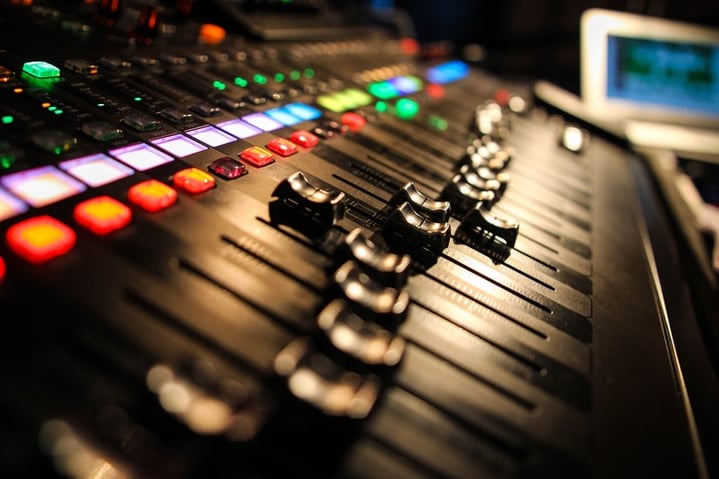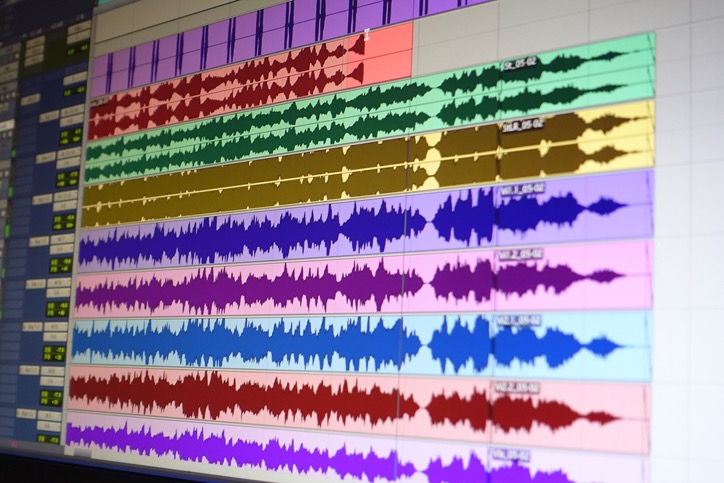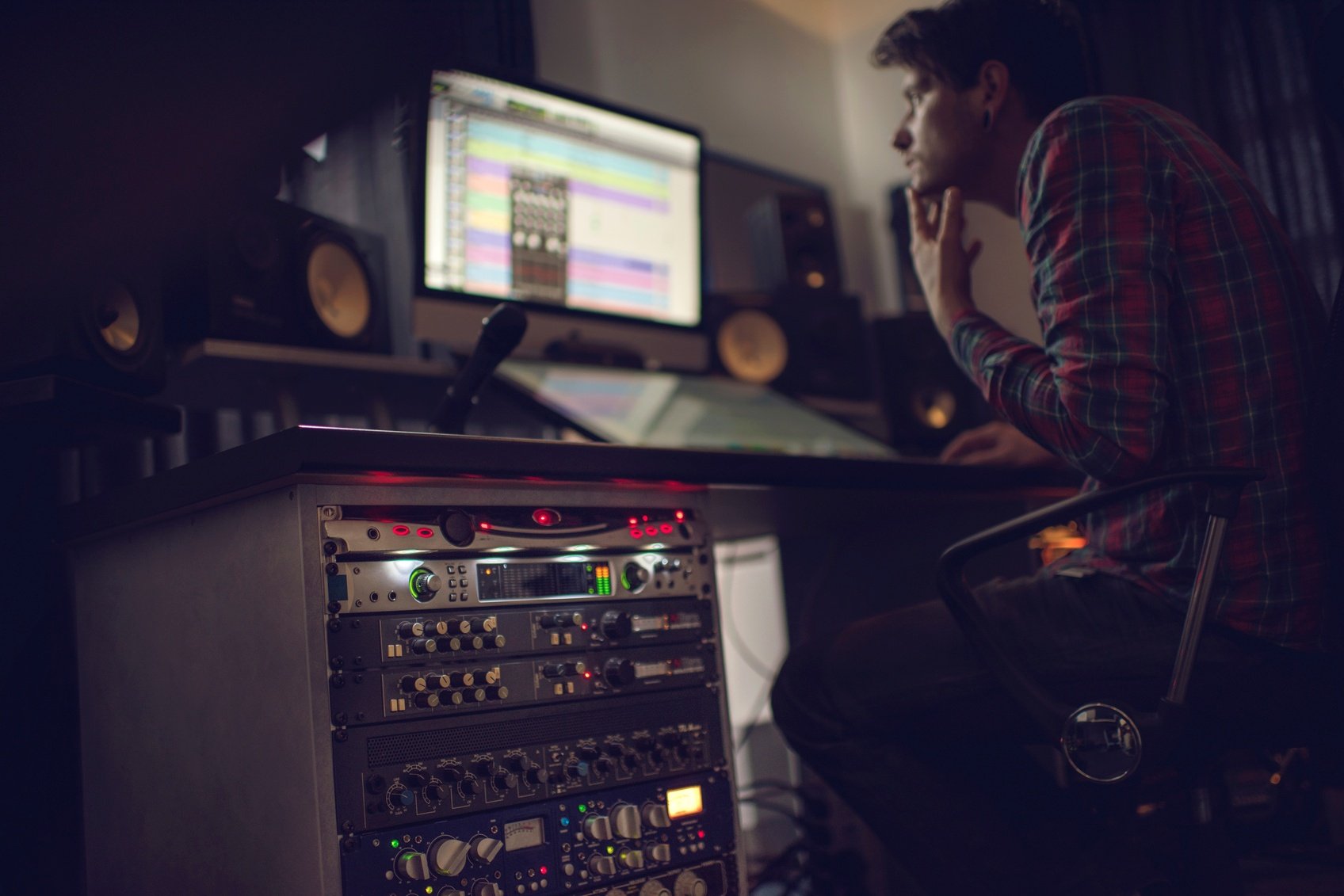When you think of an audio producer, your mind may take you to an image of a slick music producer sitting on one side of the glass in a studio with a famous musician on the other.
However, the role of an audio recording engineer is much more than sitting down in the recording studio with an artist and pressing records.
An audio engineer needs a lot of technical proficiency and carries a lot of responsibility for making sure songs and albums have good sound quality that will really wow an audience.
These engineers will be listening to all aspects of music from a technical and musical perspective.
Audio production is the backbone of these engineers, and they must know all of the ins and outs of what is going on when sound recording.
Clients may ask for input on their songs and recording techniques, and that’s when sound design engineers can really showcase their audio experiences.
Are you considering a career path as an audio engineer? Or are you a musician looking to work with an audio engineer and would like to better understand their primary responsibilities?
Let's break down the audio engineering principles.
Table Of Contents
What to expect in the role of an Audio Recording Engineer.
1. Demands and Expectations
A crucial role of recording engineers is to ensure that the studio is set up correctly and that all sound systems and audio systems are working properly before the artist arrives.
Their aim is to have clean audio effects, so you will need to check all sound-mixing components, such as microphones, computer software, cables, etc.
Clients usually pay a pretty penny for these recording sessions, so they expect all sound systems to be dialed in when they arrive, whether in professional recording studios or an excellent in-home studio.
Of course, it’s understood that the engineer will be running the mixing console and audio equipment.
The engineer will ensure that each track is mixed and edited while constantly tweaking technical aspects like sound effects, tone, and much more until they reach the desired quality.
2. Getting Involved

Sometimes, the client will want the sound engineer to be involved in the creative vision of the recording process.
It is not uncommon for engineers to be musicians as well. They may have once wanted to be music artists but realized their love for the music industry is best applied in a different way.
Whether the audio engineer is involved in the project creatively is completely up to the client.
The sound engineer can help with a wide range of tasks, including:
- Vocally produce
- Coach on different takes
- Suggest adding different sounds
- Subtract sounds
- Sound levels
- Background music
Creating space for each instrument to have its own place in the mix is where an Engineers ear for music comes into play. The great thing about this is that you can never go wrong with trying these things out.
If a sound engineer does end up getting more involved in the creative process, it is important that they know their boundaries and when to speak up.
This comes in time with knowing how the client works and adjusting to how they like to get things done.
Communication is key when helping a client with their song. Both parties should be clear about what they want and how they can help each other in the process to make things go smoothly.
The chances of creating a great mix decreases drastically if there is poor communication.
Sometimes, the drummer wants the drums to have more punch or the vocalist wants their vocals to sound brighter or have more reverb. In these cases, the sound designer needs to know exactly what to do to make that happen.
There is always the possibility of sounding overproduced as well.
A recording engineer should have a good ear for balancing the audio tracks' levels and knowing how and when to use compression, equalization, saturation, and more.
They must know how each piece of equipment will affect the signal processing of each track being recorded.
Sound technicians are familiar with the different types of microphones, such as dynamic mics, condenser mics, ribbon mics, and more. They will also know where to place microphones for guitar amps, drums, bass amps, and the room.
All of these things help in getting the client the sound production they are looking for.
3. Education
There is a certain level of education that is beneficial for Audio Recording Engineers.
Specific training and immersive experiences in audio engineering are important before becoming the chief engineer in a studio.
Some education in composition wouldn’t hurt, either, to help train your ear.
The best way to familiarize yourself with audio processing techniques and software is to take classes or obtain an associate degree from an accredited music college.
You can get away with searching for tutorials on YouTube and diving into it yourself, but you have to be determined to learn everything about the audio editing software and sound engineering techniques on your own.
It may be worth investing some money into being taught the ins and outs of these programs and to learn tricks from someone with a high experience level who will teach you in person.
Looking for work as an assistant in smaller studios can also prove beneficial. This will give you hands-on experience and a glimpse into the business side of things.
Education Invest in Yourself as an Audio Recording Engineer

As an audio design engineer, you can expect to enjoy what you’re doing as your job. While there is a lot of fun involved, it is still business at the end of the day.
You can expect to be in back-to-back sessions with small breaks.
You won’t be in a regular 9-5 job, as the hours can be long and sometimes unpredictable. Some sessions may start in the morning and run into the late hours of the night.
You are held to a high standard, as your clients are making a living off of the music albums you are helping them with.
Being cool, calm, and collected is a great attribute to have in these sessions and will make for a great process for everyone involved.
Don’t let these things scare you away, though. This career offers great opportunities, and if sound design is what you love to do, then it won’t feel like work!
If you want to increase your skill as an Audio Engineer, The Atlanta Institute of Music and Media offers a college Degree in Music Production and Audio for Media and a Certificate in Music Production.
If a future career in Audio Engineering is your passion, click the link below for more information on how you can enroll in AIMM today.
















